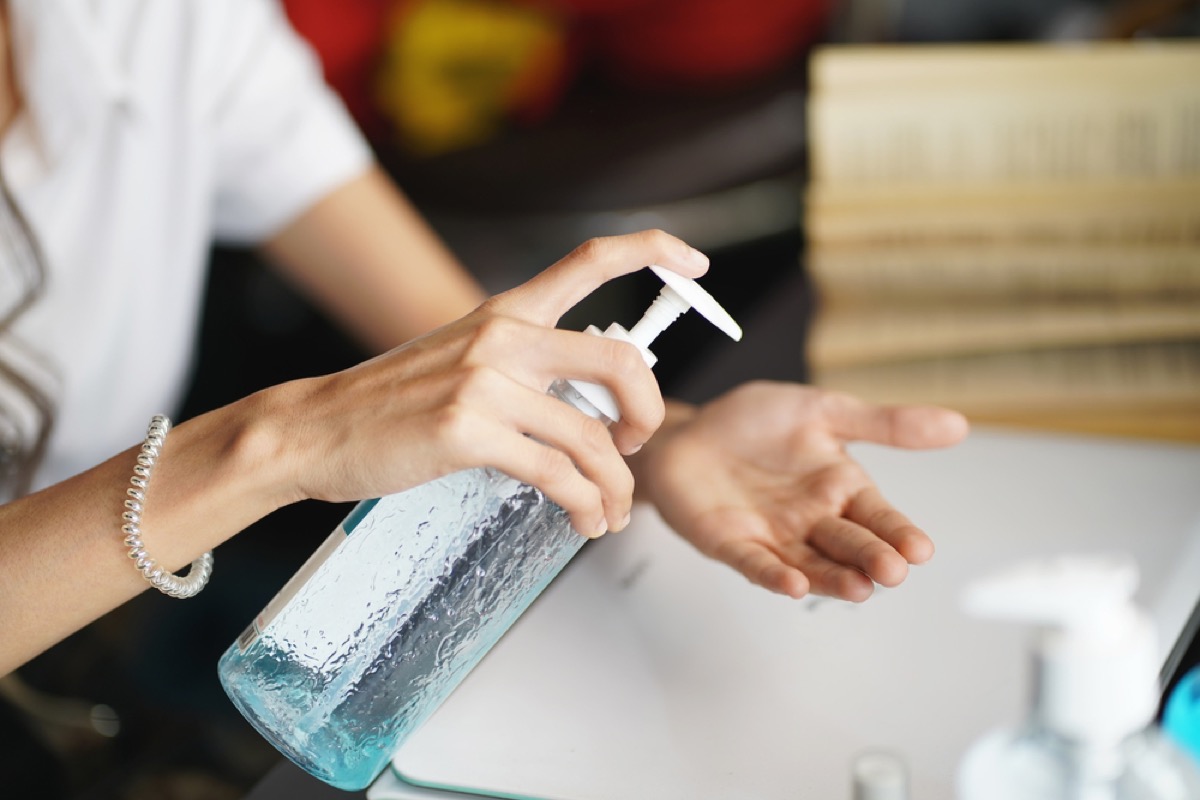In the study, researchers applied GloGerm, a lotion that simulates the presence of germs, on participants’ hands. Subjects were then instructed to use either gel-based or foaming hand soap to wash their hands; at the end of the hand-washing sessions, the amount of GloGerm on each participants’ hands was recorded. However, while researchers found no significant differences in the amount of GloGerm that remained on participants’ hands based on the type of soap they used, they did notice an interesting difference in how each type of soap affected hand-washing time. Notably, individuals who used gel-based soap washed and rinsed their hands for 4.5 seconds longer, on average, than those who used foaming soap. While this may seem insignificant, the CDC recommends washing your hands for at least 20 seconds to effectively remove pathogens—including coronavirus-contaminated respiratory droplets. In fact, according to a report from Harvard Health Publishing, increasing the amount of time you spend washing your hands from 15 to 30 seconds can reduce bacterial counts from 90 percent to 99.9 percent.ae0fcc31ae342fd3a1346ebb1f342fcb RELATED: For more up-to-date information, sign up for our daily newsletter. If the soap you’re using has antibacterial properties, all the better. According to a notable 2008 study published in Applied and Environmental Microbiology, washing with antibacterial soap significantly reduced the amount of bacterial transfer from a person’s hands onto objects. In terms of drying your hands after they’ve been washed, the method you use can have a significant effect on the amount of bacteria on them, too. A 2019 study published in Scientific Reports reveals that using a hot air dryer is the most effective means of reducing bacterial counts, whereas drying hands on clothing could potentially increase their bacterial load. And if you want to keep your hand-cleaning routine safe, make sure to avoid these 9 Hand Sanitizers the FDA Says Could Be Toxic.
